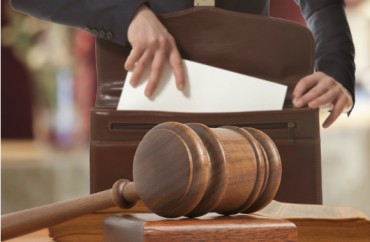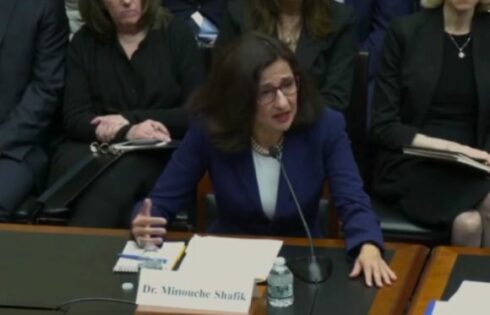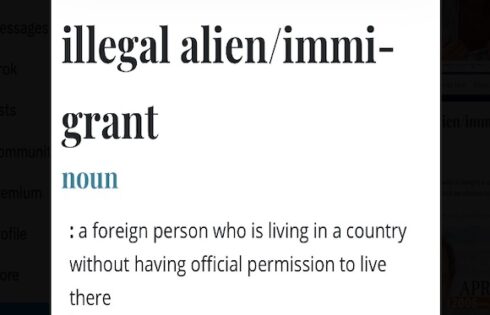
UPDATED
One person is prosecutor, jury and judge
Two years ago, a defense lawyer beat the University of California-San Diego in court for denying due process to a student accused of sexual assault.
Though an appeals court later overturned the ruling, saying it “cannot conclude the process was unfair,” lawyer Mark Hathaway is trying again, this time against the university system’s flagship institution.
He’s representing a UC-Berkeley student who was suspended and physically blocked from campus for three years on the basis of insufficient evidence that “John Doe” took sexual advantage of an incapacitated female student last fall, according to the May 31 lawsuit.
It implies the university and Chancellor Nicholas Dirks are violating state law by failing to use properly licensed investigators in its sexual-assault adjudications.
“UC Berkeley places the entire responsibility for the investigation, prosecution, factfinding, and adjudication of sexual misconduct claims in the hands of a single individual who act as police, prosecutor, jury, and judge without a hearing,” the lawsuit reads.
“This dual or triple role of a single person” is not only “discouraged” by federal civil-rights offices, but the arrangement “creates a potential conflict that can deprive complainants and respondents of an adequate, reliable, and impartial investigation,” according to the suit.
Hathaway’s short-lived 2015 victory in California Superior Court was “believed to be the first judicial ruling in recent years to find that a university failed to provide a fair trial in a sexual misconduct case,” according to the Los Angeles Times.
Pressuring a male virgin into sex
UC-Berkeley violated Doe’s rights against the backdrop of heavy pressure from the Department of Education’s Office for Civil Rights, whose investigations can threaten $137 billion in federal funds doled out yearly to colleges, the suit reads.
Such pressure – including explicit financial threats from former OCR chief Catherine Lhamon – has led schools to “aggressively prosecute” and punish even innocent males and treat accusers “as being female ‘survivors’ who must receive preferential treatment.”
The lawsuit cites an article in The Chronicle of Higher Education on colleges’ interpretation of Lhamon’s threats, which said males are presumed guilty if female partners accuse them of rape “after heavy drinking,” because males are “the one physically able to initiate sex.”
But it was actually “Jane Roe” who initiated sexual activity with the virgin Doe, whom she met at a fraternity party earlier that night, because he couldn’t physically have intercourse, according to the filing.
MORE: Judge blasts UCSD for its kooky reading of evidence
Roe told Doe she had hooked up with men from other fraternities but not Doe’s, and she “repeatedly” affirmed she wanted to have sex with him as they walked to his dorm.
Witnesses said Roe did not show signs of incapacitation that night. After she brought Doe to climax with her hand, she put her phone number in his phone, the suit claims.
Roe waited 10 days to report the incident to the Office for the Prevention of Harassment and Discrimination. She told its “complaint resolution officers” (CROs) – both licensed attorneys – she didn’t remember much about that night but couldn’t have consented because of the “significant amount of alcohol” she had consumed.
Roe may have in fact consented to the sexual activity, but because she showed “outward signs of intoxication” at the party, Doe should have known she was “incapacitated,” according to the report by one of the CROs, Layma Ahmadzai. He was found responsible for violating the school’s sexual violence policy.
Ahmadzai was sloppy from the start, putting the wrong date on the night in question and failing to tell Doe exactly what policy he was accused of violating, so that he did not know “the factual basis” for Roe’s claims, according to the suit. The CRO also declined to record interviews, so the only record of her interviews is her own “narrative” notes.
Due process lawsuit against UC-Berkeley by student accused of rape with no hard evidence by The College Fix on Scribd
Ignoring new evidence
When Doe appealed Ahmadzai’s findings, he cited a new interview with a party observer who was formally trained to “identify students too intoxicated to consent to sexual activity”:
At the TKE party, [David] Jin approached Mr. Doe and Ms. Roe on the dance floor and noticed Ms. Roe did not display any of the signs of the intoxication he was trained by [the Cal Greeks Alcohol Task Force] to spot. … Mr. Jin also witnessed Ms. Roe walked with a normal gait, was not wobbling, and spoke coherently.
Other new witnesses saw Roe “immediately after the sexual activity” and vouched that she was not incapacitated, according to the suit. Doe’s appeal was rejected anyway.
Citing California judicial case law, the suit says the university’s proceeding against Doe had a “notable stench of unfairness” because it refused to disclose evidence, didn’t let Doe “confront or challenge witnesses” even indirectly, deprived him “actual witness statements” and did not have “the weight of credible, substantial evidence supporting” Ahmadzai’s conclusions.
MORE: UCSD hides witnesses that could exonerate accused students
UC-Berkeley’s Title IX process is riddled with “structural error,” according to the suit:
[T]he outcome depends entirely on the personal opinion of the sole investigator, based on their own inquiry using trauma-informed investigating and interviewing techniques that assume the “survivor” is a victim of sexual misconduct as the “survivor” reported. The Title IX investigator simply highlights evidence that tends to support the initial allegations of the “survivor” and disregards all contrary and exculpatory evidence, thus seeking to support the survivor’s allegations with substantial evidence, but not by the weight or preponderance of the evidence as required by Title IX.
Hathaway asks for “peremptory writ of mandate” against the university to “set aside their findings and sanctions against” Doe and pay his legal fees.
A university spokesperson told The College Fix in an email it would respond “in court documents and in court proceedings. In terms of our overall student conduct process, it is designed to be fair while also holding accountable those involved in sexual misconduct.”
Remember the student called a rapist because he had good grades?
Hathaway’s webpage at his law firm plays up his work representing accused students.
“Since stepping in to help a family friend at Occidental College in 2013, Mark has assisted dozens of students and faculty in Title IX misconduct cases, both complainants and accused students, with many cases resolved at the campus level.”
That Occidental case involved an accused student whose high grades and “good family” were cited as evidence he fit “the profile of other rapists on campus.”
The college failed to convince the judge hearing the lawsuit to seal records that were accidentally posted online for months. The records portrayed Occidental’s investigation in an unflattering light.
But Hathaway’s first big win was against UC-San Diego. Superior Court Judge Joel Pressman overturned the university’s finding against the accused student on the basis that “an improper denial of the right of cross-examination constitutes a denial of due process.”
MORE: Occidental student ‘profiled’ as rapist because he had ‘good family’
He also said the right to cross-examine a witness is particularly important where “findings against a party are based on an adverse witnesses testimony.”
The chair of the UCSD hearing panel had excluded the vast majority of questions requested by the accused student in the questioning of the accuser, and didn’t ask the accuser about pertinent text messages between her and the accused.
A state appeals court disagreed with Pressman, however. Because “John [Doe] was provided with notice of his alleged violation, informed regarding the basis of that violation, and given the opportunity to put forth his defense,” despite some “concerns” about UCSD’s practices, the three-judge panel said the process was not “unfair” to Doe.
The appeals court also ordered Doe to pay the university’s legal costs. The California Supreme Court refused to hear Doe’s appeal in February.
Hathaway’s UC-Berkeley lawsuit appears to have been written quickly and not proofread well. For example, it identifies the Foundation for Individual Rights in Education, which promotes due process in college adjudications, as the “Foundation for Individual Freedom in Education.”
He sent The Fix copies of the UC-Berkeley lawsuit and another recent filing against UC-Irvine that uses the same misnomer for FIRE.
Hathaway told The Fix Tuesday there was nothing to update in the UC-Berkeley case since it has been filed. In his UC-Irvine case, Hathaway’s client – who had been suspended for two years after a similar Title IX investigation – was allowed to complete his last semester at the school after filing suit.
CORRECTION: Mark Hathaway did not ultimately prevail over UC-San Diego. A state appeals court overturned Judge Pressman’s ruling and awarded legal fees to the university, and the state supreme court declined to review that ruling. The headline and body have been amended to include the final disposition of the case.
MORE: Accused student files Title IX complaint against Occidental
Like The College Fix on Facebook / Follow us on Twitter
IMAGE: Shutterstock
Like The College Fix on Facebook / Follow us on Twitter





Please join the conversation about our stories on Facebook, Twitter, Instagram, Reddit, MeWe, Rumble, Gab, Minds and Gettr.